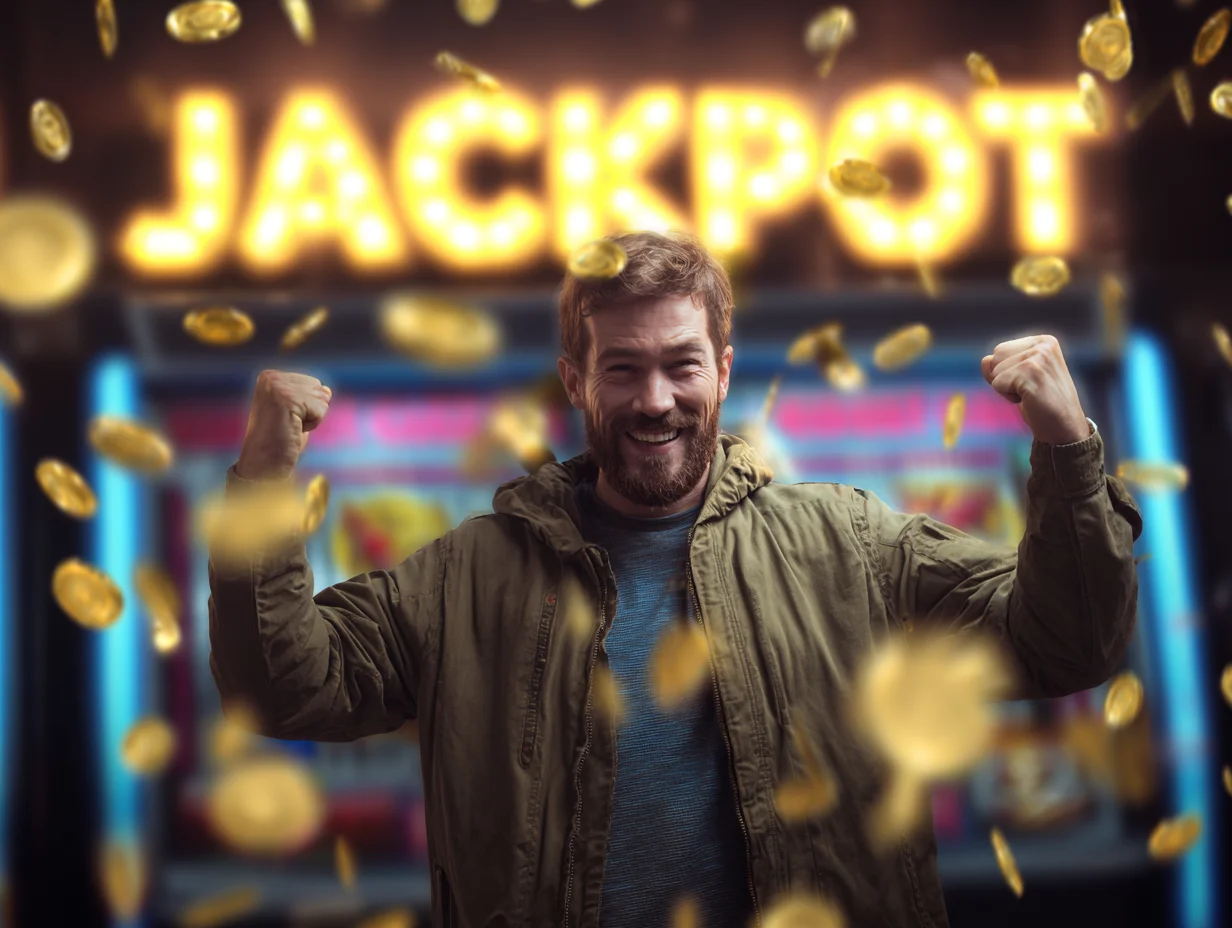Introduction
Gambling is deeply embedded in Australian culture—whether it’s pokies at your local pub, sports betting online, or a quick spin on a casino app.
For many, it’s just a casual thrill.
But for others, it quietly turns into a harmful habit with serious consequences.
If you’re constantly chasing losses, struggling to stop, or feeling like gambling is controlling your life, it’s time to take a step back.
The good news?
You’re not alone—and help is available.
This guide breaks down how to stop gambling in Australia using 10 practical, proven steps.
From self-exclusion tools and support services to mindset shifts and tech solutions, you’ll find real, actionable advice that’s helped thousands of Aussies take back control.
Whether you’re quitting completely or looking to cut back, these tips will help you make smarter choices—starting today.
1. Acknowledge the Problem Honestly
The first and most powerful step in stopping gambling is facing the truth—even if it’s uncomfortable.
It’s easy to say, “I’ve got it under control,” or “It’s just a bit of fun,” especially when you’re winning.
But if you’ve ever felt guilt after a loss, lied about how much you’ve spent, or kept gambling even when you knew you couldn’t afford it, that’s a sign it’s time to take a closer look.
Denial is the biggest barrier to recovery.
Many Australians who struggle with gambling delay getting help because they don’t want to admit the extent of the issue—not to others, and sometimes not even to themselves.
Acknowledging the problem doesn’t mean you’re weak.
It means you’re strong enough to be real with yourself—and that’s the first step toward real change.
Try asking yourself honestly:
- Do I spend more time or money on gambling than I planned?
- Have I tried to stop and failed?
- Is gambling affecting my finances, work, health, or relationships?
If you answered yes to any of these, it’s okay.
You’re not alone, and you’ve already taken the most important step by being honest about it.
From here, you can start rebuilding control—one step at a time.
2. Talk to Someone You Trust
Gambling problems often thrive in silence.
The more you try to handle it alone, the heavier it feels.
That’s why one of the most effective steps you can take is this: open up to someone you trust.
Whether it’s a close friend, a partner, a sibling, or even a colleague—talking about your struggle removes the secrecy and shame that often fuel gambling addiction.
Just saying the words out loud—“I think I need help”—can be a huge emotional release and the beginning of true support.
You don’t have to go into full detail right away.
Start simple:
“I’ve been struggling with gambling lately and it’s starting to affect me. I don’t want to hide it anymore.”
A supportive person will listen without judgment and help keep you accountable and encouraged.
They might help you set boundaries, manage money, or just check in regularly to keep you on track.
Why this matters:
- Talking reduces stress, guilt, and isolation
- It gives you emotional backup when cravings hit
- You’re more likely to stick to your recovery plan with someone in your corner
And if there’s no one in your circle you feel comfortable talking to, that’s okay too.
You can start with a professional counselor or a gambling support hotline.
The important part is not staying silent.
Remember: recovery doesn’t happen in isolation. Telling someone is not just asking for help—it’s giving yourself permission to heal.
3. Call Gambling Helplines in Australia
If you’re feeling overwhelmed, ashamed, or unsure what to do next—talking to a professional can make all the difference.
Australia has some of the best free, confidential gambling support services in the world, available 24/7.
These helplines aren’t just for people in crisis.
They’re for anyone who wants to understand their gambling behaviour, create a recovery plan, or simply talk things through with someone trained to help—without judgment.
Whether you’re the one gambling or someone close to you is affected, these services are safe, anonymous, and always available.
Top Gambling Helplines in Australia
-
Gambling Help Online
24/7 live chat and phone support, with counsellors experienced in problem gambling.
🌐 www.gamblinghelponline.org.au
📞 1800 858 858
-
Gamblers Help Victoria
Offers free counselling, financial advice, and community support programs.
-
Gambling Help NSW
Provides face-to-face and online support, including services for multicultural communities.
-
Lifeline Australia
For immediate crisis support (not gambling-specific, but helpful if you’re in distress).
📞 13 11 14
Why Call?
- You’ll speak with someone who understands what you’re going through
- They can help you create a personal action plan to stop or reduce gambling
- You’ll get access to counselling, self-exclusion tools, and financial support options
- No pressure, no judgment—just support
You don’t have to commit to anything.
Even one phone call or live chat can give you clarity, motivation, and next steps.
Asking for help is not a weakness.
It’s the smartest thing you can do.
4. Self-Exclude from Gambling Venues and Apps
One of the most effective ways to stop gambling is to remove access completely—and that’s exactly what self-exclusion programs are designed to do.
Self-exclusion is a voluntary process where you formally ask a venue, betting site, or gambling provider to block you from using their services.
Once you register, these businesses are legally required to prevent you from gambling with them for a set period—or permanently.
It may feel like a drastic step, but for many Australians, it’s a game-changer.
Why Self-Exclusion Works
- It puts physical and digital barriers between you and gambling
- It helps break the impulse cycle—especially during cravings
- It’s confidential, legally recognised, and often backed by support services
- It removes temptation from your daily life, so you can focus on recovery
How to Self-Exclude in Australia
BetStop – National Self-Exclusion Register
Australia’s official online self-exclusion system for all licensed online betting operators.
- Register once, and get excluded from all legal betting sites in the country.
- Choose a time frame: 3 months, 6 months, or lifetime exclusion.
- 🌐 www.betstop.gov.au
In-Person Venue Bans
You can self-exclude from:
- Pokies at pubs and clubs
- TAB outlets
- Casinos (e.g. The Star, Crown)
Ask the venue staff or contact the venue’s Responsible Gambling Officer.
Many clubs are connected to regional exclusion programs like GameCare or ClubSAFE.
Online Gambling Accounts
Most licensed platforms offer built-in exclusion tools under “Responsible Gambling” settings:
- Set deposit or time limits
- Suspend or permanently close your account
- Block all marketing emails and push notifications
Pro Tips:
- Combine self-exclusion with gambling-blocking apps like Gamban or BetBlocker for extra protection
- Tell a trusted friend or family member to support your self-exclusion period
- Don’t wait until a relapse—do it before the urge hits
Self-exclusion isn’t about giving up—it’s about taking control.
It’s not forever (unless you want it to be), but it creates a safe space where you can reset, heal, and rebuild without gambling getting in the way.
5. Use Gambling Blockers and Apps
In today’s digital world, gambling is never more than a few taps away.
Whether it’s online casinos, sports betting apps, or pop-up ads tempting you back in—technology can be both the problem and the solution.
That’s where gambling blockers and apps come in.
These tools are designed to restrict your access to gambling content, websites, and apps—so you can stay focused on recovery without constant digital temptation.
What Gambling Blockers Do
- Block access to gambling websites and apps (across browsers, devices, or entire networks)
- Limit the amount of time you spend online
- Help you manage screen time and develop better digital habits
- Some even alert your accountability partner if you try to bypass the block
Popular Gambling Blockers for Australians
Gamban
- Blocks access to gambling websites and apps across all devices
- Easy to install on Windows, Mac, iOS, and Android
- Highly rated and used globally
- 🌐 www.gamban.com
BetBlocker
- Free and effective
- Offers customizable blocking durations (from days to permanent)
- Supports desktop and mobile
- 🌐 www.betblocker.org
Freedom or Cold Turkey
- Not gambling-specific but useful for blocking websites or apps
- Schedule “Focus Sessions” to avoid risky sites during high-craving times
- Ideal for creating distraction-free periods
Bank-Level Gambling Blocks
Many Australian banks now let you block gambling transactions on debit and credit cards with a few clicks:
- NAB, Commonwealth Bank, Westpac, and ANZ all offer this feature
- You can activate blocks via the mobile app or by contacting customer service
- Some even let you block ATM cash withdrawals
Pro Tips:
- Use a combination of blockers (browser + app + banking tools) for maximum protection
- Install blockers on all your devices, including phones, tablets, and laptops
- Pair blockers with self-exclusion programs like BetStop for a layered approach
- Share the tools with a trusted person for accountability
Out of sight, out of mind. Gambling blockers aren’t a cure—but they buy you space to breathe, think clearly, and resist the urge in moments of weakness.
They’re like digital speed bumps on the road to recovery—slowing you down before you go too far.
6. Track Your Spending (Every Dollar Counts)
One of the biggest traps in problem gambling is losing track of money.
It’s easy to forget how much you’ve spent when it’s spread across small bets, digital deposits, or late-night spins on an app.
But those small losses add up fast, and before you know it—you’re hundreds or thousands of dollars in the red.
That’s why tracking every dollar is a critical step in regaining control.
It brings your gambling habits into the light—and once you see the full financial impact, it becomes harder to ignore or justify continuing.
Why It Works
- It makes you conscious of your spending patterns
- It helps you face the reality of losses (not just the rare wins)
- It shows you how much money you could save by quitting
- It provides a clear baseline to measure your progress
Even one week of honest tracking can be eye-opening.
Tools to Track Your Spending in Australia
Pocketbook
- Links to your bank account
- Automatically categorises gambling transactions
- Gives a clear breakdown of where your money goes
MoneyBrilliant
- Great for budgeting and goal-setting
- Useful for tracking gambling-related expenses
- Can alert you when spending exceeds your limits
You Need A Budget (YNAB)
- Helps you build a money plan instead of reacting to expenses
- Great for people recovering from gambling debt
Or, keep it simple:
- Use a notebook, spreadsheet, or a notes app
- Record every deposit, withdrawal, and spin—no matter how small
Bonus Tip: Log Your Emotions Too
Pair your money tracking with a note on how you felt after each gambling session.
Patterns will emerge—like gambling more when stressed or trying to “win back” money after a loss.
This insight helps you break the cycle.
Tracking your spending might feel uncomfortable at first, but it’s one of the most empowering things you can do.
Because once you know exactly where your money is going, you can decide where you want it to go instead.
That’s the first real step toward financial freedom.
7. Find Your Triggers and Replace the Habit
Gambling is rarely just about the money—it’s often an emotional escape or a response to certain triggers. Stress, boredom, loneliness, anxiety, alcohol, or even getting paid can push someone to place a bet.
To break free, you must first understand what drives your urge to gamble, then replace the behaviour with something healthier.
Step 1: Identify Your Triggers
Ask yourself:
- When am I most likely to gamble?
- What emotions do I feel just before? (boredom, stress, sadness?)
- Who am I usually with—or am I alone?
- What places or apps are involved?
These patterns help you pinpoint your mental, emotional, and environmental triggers.
Examples:
- You gamble when you’re bored at night
- You bet after drinking
- You chase losses after a bad day
- You’re triggered by betting ads or push notifications
Once you know the why, you can start taking back control.
Step 2: Replace the Habit with Something Positive
Gambling is a behaviour.
You can’t just cut it out—you have to replace it.
The goal is to satisfy the same emotional need in a healthier way.

Replace the Habit with Something Positive
Consistency is key. The more often you redirect the urge, the easier it becomes over time.
Bonus Tip: Use Delay Techniques
When the craving hits, delay it.
Tell yourself:
“I’ll wait 15 minutes, then decide.”
“I’ll go outside, take a shower, or text a friend first.”
This pause breaks the automatic behaviour cycle.
Many cravings fade if you don’t act on them right away.
Understanding your triggers gives you back control.
Replacing the habit gives you a new path forward.
Recovery isn’t just about saying no—it’s about building a life where gambling has no space to thrive.
8. Join Support Groups and Therapy
Stopping gambling on your own is tough—but you don’t have to do it alone.
Support groups and professional therapy offer tools, understanding, and real community to help you break the cycle for good.
For many Australians, the turning point came when they finally spoke to others who understood what they were going through.
Whether it’s face-to-face, online, or over the phone, the support you need is out there.
Support Groups: You’re Not Alone
One of the most effective recovery tools is peer support—talking to people who’ve walked the same path.
Gamblers Anonymous (GA)
- Follows the 12-step model, similar to Alcoholics Anonymous
- Free, confidential, and available in cities across Australia
- Focused on shared experiences, encouragement, and accountability 🌐 www.gaaustralia.org.au
SMART Recovery
- Science-based group sessions (online and in-person)
- Focuses on self-management, behaviour change, and practical tools 🌐 www.smartrecoveryaustralia.com.au
Being part of a group gives you a sense of community and helps you see that recovery is not only possible—it’s happening every day.
Therapy: Get to the Root Cause
Gambling addiction isn’t just about money—it’s often about underlying stress, trauma, anxiety, or impulsivity.
A licensed therapist can help you uncover what’s really driving your gambling habits and build healthier coping strategies.
Best therapy options for gambling:
- Cognitive Behavioural Therapy (CBT) – helps change destructive thinking and behaviour patterns
- Motivational Interviewing (MI) – helps boost your motivation to quit
- Financial counselling – helps you rebuild stability and confidence with money
You can access therapy through:
- Gambling Help Online
- Local state services (like Gamblers Help Victoria or Gambling Help NSW)
- Medicare-rebated psychologists via a GP referral
Why It Works
- You’ll gain emotional support and expert tools
- Therapy helps deal with relapses, urges, and guilt
- Groups keep you accountable and inspired by others’ progress
- You learn that you’re not broken—you’re human, and recovery is possible
Recovery doesn’t happen in isolation. Support is strength, and asking for help is the most courageous step you can take.
You’re not the only one going through this—and you definitely don’t have to go through it alone.
9. Cut Access to Money You Can Gamble
One of the most effective ways to reduce gambling is to make it harder to access your money.
When gambling is only a few taps or swipes away—especially with online betting and casino apps—temptation can hit fast and hard.
That’s why setting up financial barriers is crucial.
If you can’t easily access the funds, you’re far less likely to act on a gambling urge in the heat of the moment.
Smart Ways to Limit Access to Gambling Money
Hand Over Control
- Ask a trusted family member or partner to manage your cards, accounts, or cash for a while.
- Set a weekly allowance for essentials, and let them hold onto the rest.
Separate Bank Accounts
- Keep your savings in an account that’s not linked to your debit card or online banking.
- Use high-security or restricted accounts that take time to access.
Block Gambling Transactions
Most major Australian banks now offer gambling blocks:
- Commonwealth Bank, NAB, ANZ, and Westpac allow you to block gambling-related charges on debit and credit cards via their mobile apps or customer support.
- These blocks are instant, discreet, and in many cases, can’t be turned off right away.
Cancel or Limit Credit Cards
- Cancel unused credit cards
- Reduce credit limits to remove temptation
- Opt for prepaid cards or cash-only spending to stay on track
Remove Cash Withdrawal Options
- Limit ATM access or request daily withdrawal caps
- Avoid carrying large amounts of cash—gambling is much easier when you’re holding the funds
Pro Tips:
- Delete payment info from all gambling apps or websites
- Unsubscribe from any betting-related marketing emails and SMS that might encourage spending
- Log out or deactivate PayPal, Apple Pay, and similar services used for gambling
- If you own cryptocurrency or e-wallets, store them in cold wallets or under someone else’s control
Why It Works
Impulsive gambling often happens in seconds.
Delaying or complicating your ability to access money gives you time to think, calm down, and choose a better response.
It doesn’t mean you’ll never control your finances again—it just means you’re creating guardrails while you rebuild trust in yourself.
Cutting access to your gambling funds isn’t a punishment. It’s a protective strategy—and one that helps you make better decisions before the damage is done.
10. Set Short-Term Goals and Celebrate Wins
When you’re trying to stop gambling, thinking too far ahead can feel overwhelming.
That’s why one of the most effective strategies is to set short-term, realistic goals and celebrate your progress along the way.
Big changes happen through small, consistent steps. Instead of focusing only on quitting “forever,” break it down:
- “I won’t gamble for 24 hours.”
- “I’ll make it to the weekend without logging into a betting app.”
- “I’ll save AUD50 this week instead of spending it on pokies.”
Every short-term win builds momentum, confidence, and self-control.
Why Short-Term Goals Work
- They reduce pressure and make the journey feel manageable
- They create quick wins, which boost your motivation
- You stay focused on the present—not stuck in guilt over the past or fear about the future
- Progress becomes visible, which reminds you that you’re capable of change
Even one day without gambling is a victory.
Celebrate that.
Celebrate Milestones—Big or Small
- Put the money you saved in a visible jar or savings app
- Treat yourself (without gambling): a nice meal, a massage, a new book
- Share your success with someone who supports you
- Track your streaks and look back to see how far you’ve come
Rewards reinforce positive behaviour.
Just make sure they don’t trigger cravings—keep them healthy, fun, and guilt-free.
Pro Tips:
- Use a habit tracker app or journal to mark your progress
- Keep a visible list of your wins (e.g., “Day 5—No Gambling, +AUD100 saved”)
- Remind yourself: “Progress, not perfection”—if you slip, start fresh without shame
Recovery isn’t a straight line.
It’s a series of small wins stacked on top of each other.
Set goals that make sense for where you are now, and reward yourself as you climb.
Each day you don’t gamble is not just a win—it’s proof that you’re stronger than the urge.
Final Thoughts: Quitting Gambling in Australia Is Possible
If you’ve made it this far, you’re already doing something powerful—taking back control.
Quitting gambling may feel like a massive mountain to climb, but here’s the truth: thousands of Australians have done it, and so can you.
Yes, the journey can be tough.
There might be cravings, setbacks, or moments where giving up feels easier. But with every step—setting boundaries, seeking support, using blockers, talking to someone—you’re retraining your brain, rebuilding your confidence, and creating a life where gambling doesn’t control you anymore.
Australia has a strong network of support, from professional counselling to community groups to tech tools that put you back in charge.
You’re not alone, and you don’t have to figure it all out at once.
Remember:
- Gambling isn’t who you are—it’s a behaviour, and behaviours can be changed
- Slip-ups don’t erase your progress—they’re part of the process
- Asking for help is a sign of courage, not weakness
- Every day you don’t gamble is a win worth celebrating
You don’t need to be perfect.
You just need to keep going.
You’ve Got This
If you’re ready to stop gambling, support is everywhere—and it starts with one simple truth: recovery is possible.
Take it one day at a time.
Use the tools.
Lean on people who care.
And remind yourself often:
“I deserve better—and I’m building it.”





Leave A Comment